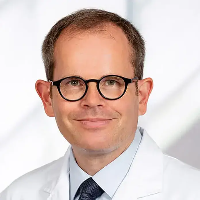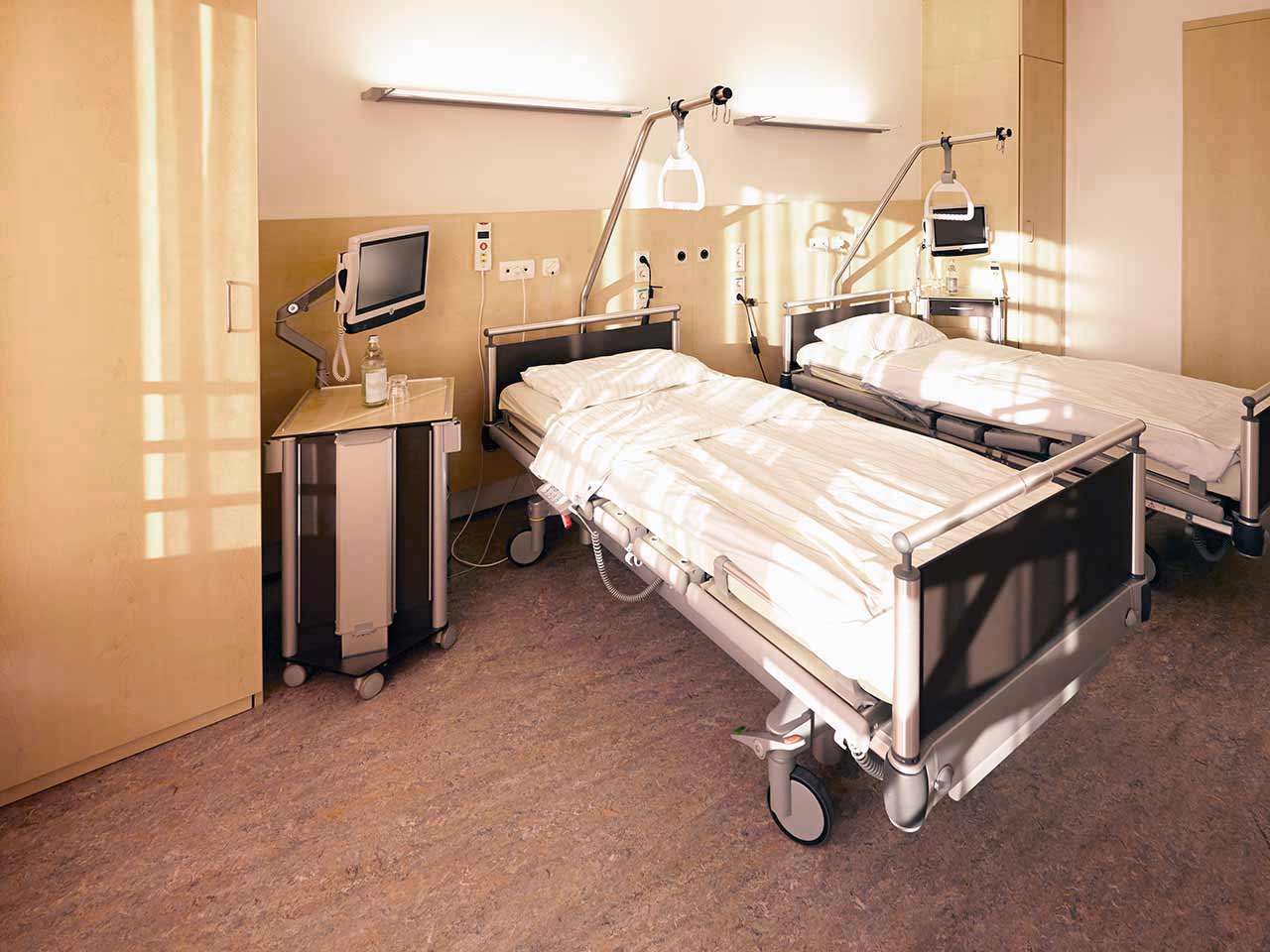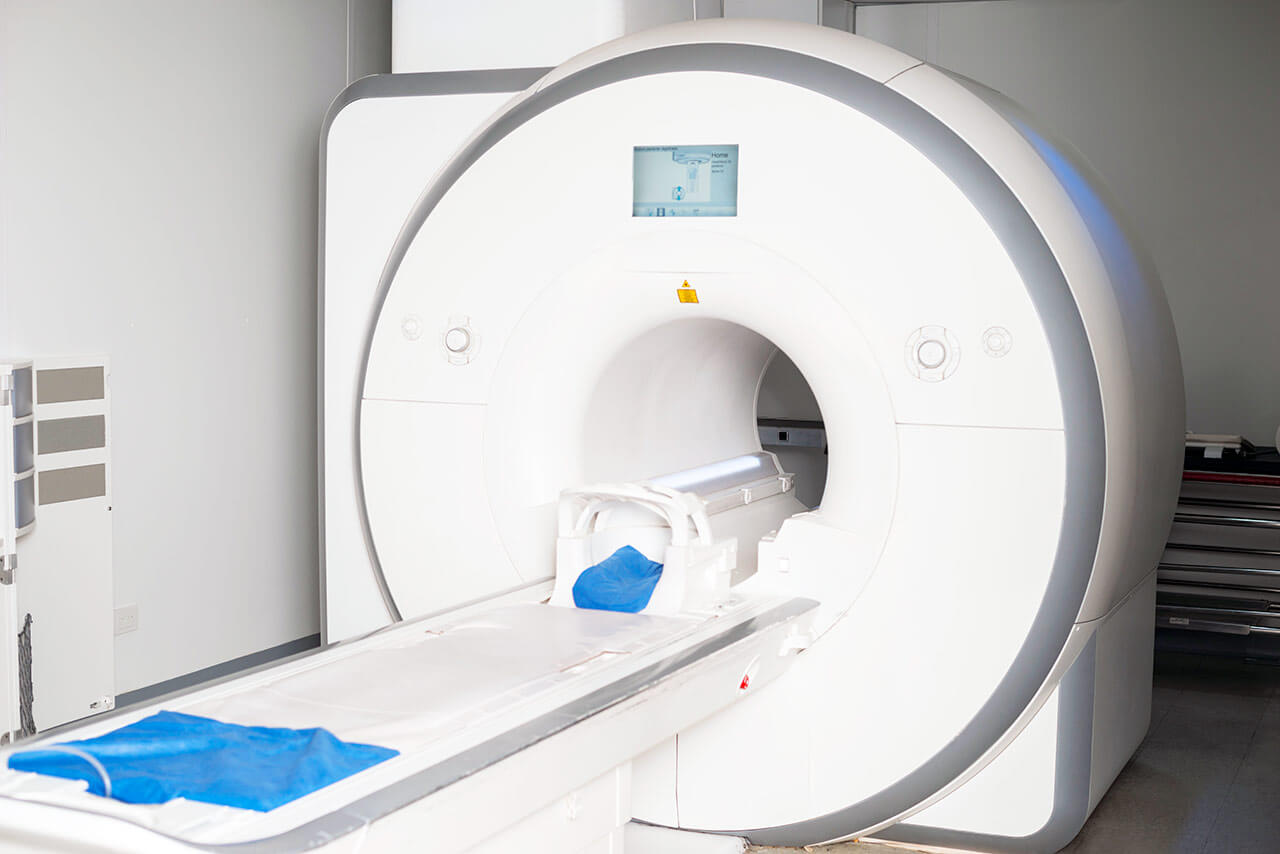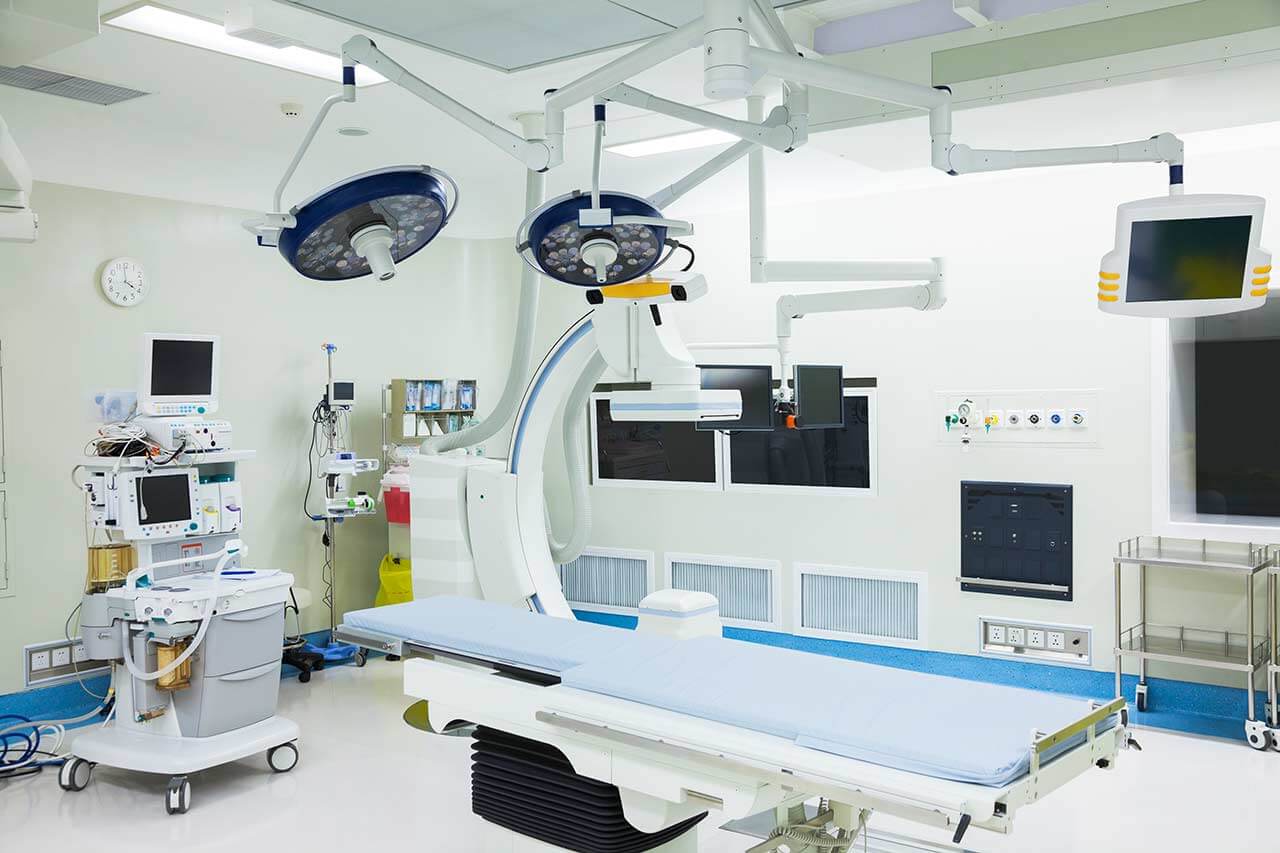
The program includes:
- Initial presentation at the clinic
- clinical history taking
- review of medical records
- general clinical examination
- extensive laboratory tests:
- complete blood count
- biochemical blood test
- inflammation markers (CRP, ESR)
- blood coagulation analysis (aPTT, PT, INR)
- serological analysis (PCR, IgM and IgG to VCA-antigens)
- nursing services
- treatment by chief physician and all leading experts
- explanation of individual treatment plan
- written statement
Required documents
- Medical records
Service
You may also book:
 BookingHealth Price from:
BookingHealth Price from:
About the department
The Department of Oncology, Hematology, Rheumatology and Bone Marrow Transplantation at the Nuremberg Hospital provides the full range of services in the fields of its competence. The team of the department's doctors specializes in the diagnostics and treatment of solid tumors of various localizations, malignant blood diseases, and rheumatic pathologies. The department also has long experience treating rare cancers. Various systemic therapies for cancer, targeted therapy, autologous and allogeneic bone marrow transplantations, CAR T-cell therapy, which belongs to the innovative treatment methods, and many other therapeutic options are available here. The department is part of the Comprehensive Cancer Center, which holds weekly tumor boards with the participation of physicians from various medical specialties. It is certified by the German Society of Hematology and Medical Oncology (DGHO). A large team consisting of 32 physicians and over 100 nursing staff members works with patients. More than 4,560 inpatients and about 4,000 outpatients are treated in the department annually. The Head Physician of the department is Prof. Dr. med. Stefan Knop.
The department's team of doctors focuses on patients with solid malignant tumors of various organs. The department's oncologists, along with specialists from the Comprehensive Cancer Center, are responsible for treating patients with cancer. The center collaborates with experts who possess excellent professional skills in the treatment of cancers affecting the gastrointestinal tract, lungs, skin, breast, female reproductive system, prostate gland, and other organs. The treatment regimen is developed for each patient during an interdisciplinary tumor board, where doctors accurately examine diagnostic data and select the optimal complex of therapeutic measures. The surgical resection of the neoplasm, including part of the affected organ (depending on the spread of the cancer process), is most often the first-line treatment. However, a single surgical intervention is often not enough to completely cure cancer or achieve stable remission, so the treatment regimen includes systemic therapies such as chemotherapy, targeted therapy, hormone therapy, immunotherapy, antibody therapy, and others.
The department's hematologists successfully treat leukemia, myelodysplastic syndrome, and lymphomas. Chemotherapy is the main treatment method for the above-mentioned pathologies. The department has been performing bone marrow transplantations for many years, which are a second-line treatment for patients with malignant blood diseases. The specialists at the medical facility perform both allogeneic and autologous transplantations. An allogeneic bone marrow transplant involves transplanting an organ from a donor (related or unrelated), while an autologous transplant involves transplanting the patient's own stem cells. Allogeneic bone marrow transplantation is usually indicated for patients with acute leukemia, myelodysplastic syndrome, and myeloproliferative diseases. Autologous bone marrow transplantation is an effective treatment for multiple myeloma and non-Hodgkin's lymphoma.
The department also offers innovative CAR T-cell immunotherapy. This personalized treatment method involves activating the patient's own immune system to destroy tumor cells. Using state-of-the-art equipment, the patient's leukocytes are separated from the rest of the blood. In a specialized laboratory, these leukocytes are genetically modified to express chimeric antigen receptors (CARs). The final step involves multiplying the modified cells in the laboratory to obtain millions of cells, which are then infused back into the patient's body. After one infusion of leukocytes with chimeric antigen receptors, they remain in the patient's body and continue to attack the tumor for months or even years. CAR T-cell immunotherapy has demonstrated high efficacy in the treatment of acute leukemia, lymphoma, multiple myeloma, and other cancers. This treatment is currently considered advanced and is practiced only at leading German medical centers.
The treatment of rheumatic diseases is another important area of the department's clinical activity. Patients receive treatment from competent rheumatologists with extensive experience. The specialists treat rheumatoid arthritis, psoriatic arthritis, collagenosis, vasculitis, sarcoidosis, osteoporosis, and immunodeficiency disorders. Depending on the severity of the clinical case, therapy may take place on an inpatient or outpatient basis. Patients with rheumatic diseases usually receive an individually developed course of drug therapy.
The department's range of medical services includes:
- Diagnostics and treatment of oncologic diseases
- Colon cancer
- Stomach cancer
- Esophageal cancer
- Liver cancer
- Pancreatic cancer
- Lung cancer
- Skin cancer
- Breast cancer
- Female reproductive cancers
- Prostate cancer
- Malignant head and neck tumors
- Diagnostics and treatment of hematologic diseases
- Leukemias
- Myelodysplastic syndromes
- Lymphomas
- Multiple myeloma
- Blood clotting disorders
- Diagnostics and treatment of rheumatic diseases
- Rheumatoid arthritis
- Psoriatic arthritis
- Collagenoses
- Vasculitis
- Sarcoidosis
- Osteoporosis
- Autoinflammatory syndromes (for example, adult-onset Still's disease)
- Immunodeficiency disorders
- Other medical services
The department's therapeutic options include the following:
- Chemotherapy
- Targeted therapy
- Hormone therapy
- Antibody therapy
- Immunotherapy, including innovative CAR T-cell therapy
- Autologous and allogeneic bone marrow transplants
- Drug therapy for rheumatic diseases
- Other treatment methods
Curriculum vitae
Since November 1, 2021, Prof. Dr. med. Stefan Knop has been heading the Department of Oncology, Hematology, Rheumatology and Bone Marrow Transplantation at the Nuremberg Hospital. Stefan Knop is a Professor at the University of Wuerzburg. He graduated from the Faculty of Medicine of the Eberhard Karl University of Tuebingen. In 2000, he defended his thesis on the subject: "The use of the cytoprotective amifostine to alleviate the toxic side effects of cisplatin- and ifosfamide- containing chemotherapy". This was followed by clinical practice at the University Hospital Tuebingen (until 2005). The next position for Prof. Stefan Knop was at the University Hospital Wuerzburg, where he underwent habilitation and became a Professor in 2015.
Prof. Knop is actively engaged in research activities, the primary focus of which is multiple myeloma treatment. For this purpose, the Department of Multiple Myeloma was established at the University Hospital Wuerzburg. This department is funded by the Wilhelm Sander Foundation and headed by Prof. Stefan Knop along with Prof. Hermann Einsele. Prof. Knop pays particular attention to teaching activities. In 2012, he was awarded the Albert Kolliker Teaching Prize in the amount of 10,000 euros by the Faculty of Medicine at the University of Wuerzburg for a series of extracurricular lectures on "Differential diagnosis of internal diseases".
Photo of the doctor: (c) Klinikum Nürnberg
About hospital
According to the reputable Focus magazine, the Nuremberg Hospital ranks among the top German medical facilities!
The hospital is one of the largest, highly specialized medical centers in Europe and positions itself as the maximum care hospital. The healthcare facility is an academic hospital of the Paracelsus Medical University in Nuremberg. It houses 42 departments, institutes, and highly specialized centers focusing on various medical fields. All the hospital's employees work hand in hand for the benefit of their patients. The specialists strive to provide top-class medical care for every patient. Moreover, the medical team always shows a humane attitude and understanding towards the patient's life situation, making every effort to support them during the entire therapeutic process.
The total number of beds in the hospital is 2,233. The medical team consists of more than 8,400 employees, including many world-famous doctors and professors who had their clinical training at the best medical facilities in Germany, other European countries, and the USA. The hospital admits more than 100,000 inpatients and more than 170,000 outpatients annually. The number of patients who come to the hospital steadily increases every year, which is the best confirmation of its high standards and outstanding treatment results.
The cornerstone of successful clinical practice is state-of-the-art technical infrastructure. The hospital offers its patients innovative technologies such as the Da Vinci surgical system, devices for stereotactic procedures, intraoperative radiation therapy, angiography, PET CT devices, high-intensity focused ultrasound, 64-slice CT scanners, and other advanced medical devices. The combination of cutting-edge technical facilities and the high competence of the physicians allows for the provision of effective treatment even in the most complex cases.
The Nuremberg Hospital is undoubtedly one of Germany's leading medical facilities, where patients benefit from modern infrastructure, precise diagnostics, effective treatment, and responsive care.
Photo: (с) depositphotos
Accommodation in hospital
Patients rooms
The patients at the Nuremberg Hospital live in comfortable single and double rooms. Each patient room is equipped with an ensuite bathroom with a shower and a toilet. Standard rooms include an automatically adjustable bed, a bedside table, a wardrobe for storing clothes, a table and chairs for receiving visitors, a TV, and a radio. The hospital also offers Wi-Fi.
If desired, patients can live in enhanced-comfort rooms. Such patient rooms are more spacious, and their furnishings correspond to the level of an upscale hotel.
Meals and Menus
The patients at the hospital are offered tasty and balanced meals three times a day: breakfast, lunch, and dinner. The patients have a daily choice of three dishes for lunch and dinner, while breakfast is served as a buffet.
If, for some reason, you do not eat all foods, you will be offered an individual menu. Please inform the medical staff about your food preferences prior to treatment.
Further details
Standard rooms include:
Accompanying person
Your accompanying person may stay with you in your patient room or at the hotel of your choice during the inpatient program.
Hotel
You may stay at the hotel of your choice during the outpatient program. Our managers will support you for selecting the best option.





